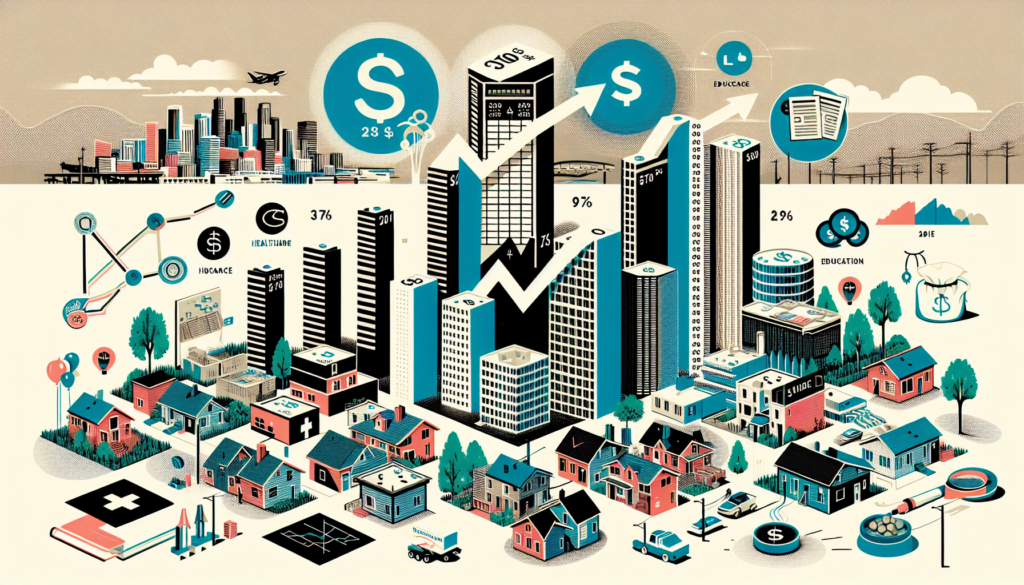
Understanding the High Cost of Living in Seattle
Living in Seattle can come with a hefty price tag, with its high cost of living being a significant concern for many residents. From skyrocketing rent prices to the ever-increasing cost of groceries, understanding the factors behind Seattle’s expensive lifestyle can help shed light on this issue. In this article, we’ll explore some of the reasons behind the high cost of living in Seattle, providing you with valuable insights into this bustling city’s financial landscape.
Table of Contents
ToggleFactors Contributing to the High Cost of Living in Seattle
Seattle, known for its vibrant tech scene and natural beauty, is no stranger to high living costs. Several factors contribute to the city’s expensive lifestyle, making it one of the most expensive cities in the United States. Understanding these factors can shed light on the reasons behind Seattle’s high cost of living.

Strong Job Market and High Demand for Skilled Workers
Seattle’s booming job market, particularly in the tech industry, is a key factor driving up the cost of living. With companies like Amazon and Microsoft headquartered in the city, there is a high demand for skilled workers. As a result, wages in Seattle tend to be higher compared to other cities, attracting workers from all over the country. This high demand for talent creates competition, leading to increased salaries and ultimately impacting the cost of living.
Limited Housing Supply and High Demand
One of the most significant factors contributing to the high cost of living in Seattle is the limited housing supply compared to the growing population. The region’s population growth has outpaced the development of new housing, leading to a shortage of available homes. As demand continues to rise, housing prices and rental rates have skyrocketed. The influence of technology companies, who often offer large salaries to employees, has further intensified the demand for housing.
Rapid Population Growth and Influx of High-Income Earners
Seattle has experienced rapid population growth in recent years, attracting individuals from across the country and around the world. Many people are drawn to the city due to its thriving tech industry and strong job market. This influx of high-income earners has had a significant impact on the cost of living, driving up prices for housing, services, and goods.
High Cost of Housing and Real Estate
Seattle’s housing market has seen soaring prices, making homeownership increasingly unaffordable for many residents. The limited housing supply, coupled with the high demand, has created a competitive market that drives prices up. As a result, buying a home or even renting an apartment can be prohibitively expensive for many people. The rising cost of real estate has also contributed to gentrification and displacement in certain neighborhoods.

Expensive Homeownership and Renting
The cost of homeownership in Seattle can be daunting. High mortgage interest rates, rising property taxes, and escalating rental costs all contribute to the overall expense. Additionally, some landlords request higher security deposits due to the competitive nature of the rental market. These factors make it challenging for individuals and families to find affordable housing options and contribute to the high cost of living.
Taxes and Cost of Goods and Services
Seattle residents face higher local and state taxes compared to many other cities in the United States. Sales and property taxes can take a significant portion of an individual’s income. Additionally, goods and services, such as groceries and dining out, tend to be more expensive in Seattle compared to other cities in the country. Utilities, including electricity and water, also contribute to the overall cost of living.
Transportation Expenses
Getting around in Seattle can be costly. Increasing gas prices, expensive public transportation fares, parking costs, and tolls all contribute to transportation expenses. Commuting can also be expensive for those who work outside the city center, adding to the overall cost of living.
Healthcare Costs
Healthcare costs in Seattle can be a significant burden for residents. Health insurance premiums are often expensive, and the cost of medical treatments and prescription drugs can add up quickly. Limited availability of affordable healthcare options, including mental health services, further adds to the overall cost of living.
Education and Childcare Expenses
Seattle’s high cost of living also extends to education and childcare expenses. Private schools and higher education institutions often come with steep price tags, making education more expensive. Additionally, quality childcare facilities can be costly, impacting families’ budgets and adding to the city’s overall cost of living.
Other Factors Influencing the Cost of Living
Several other factors can contribute to the high cost of living in Seattle. Inflation can lead to higher prices for goods and services over time. Entertainment and recreational activities, such as dining out, attending concerts, or visiting tourist attractions, can also be expensive in the city. The cost of clothing and other goods may also be higher compared to other cities. Additionally, the quality of life factors, such as access to green spaces, cultural amenities, and safety, can influence the cost of living in Seattle.
In conclusion, the high cost of living in Seattle can be attributed to a combination of factors, including a strong job market, limited housing supply, rapid population growth, and high housing costs. Taxes, transportation expenses, healthcare costs, education, and other factors also contribute to the overall expense of living in the city. While Seattle offers many opportunities and amenities, individuals considering relocating to the area should be prepared for the higher cost of living associated with this vibrant and thriving city.

Is Seattle a Car-Friendly City?
You May Also Like

Every NEW Neighborhoods in Camas, WA | Complete Camas Map Guide
22 August 2023
Budget-friendly Accommodations In Vancouver Washington
4 August 2023




